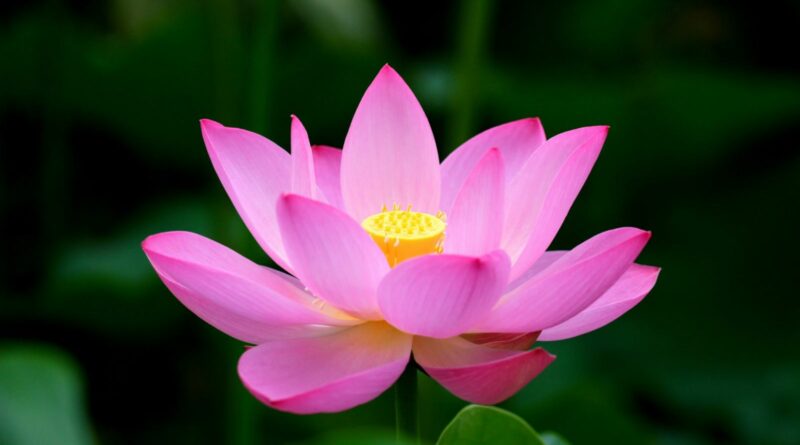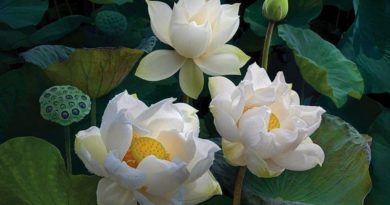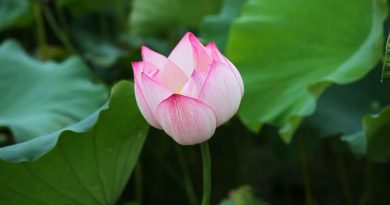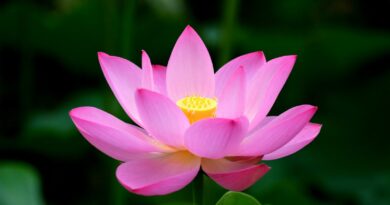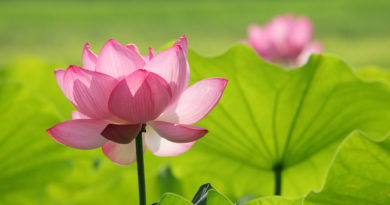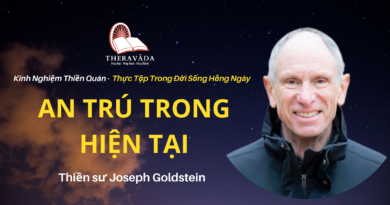Answers By Mr. S. N. Goenka: Beliefs
MAIN CONTENT
- What is the Dharma of ātma, soul?
- It is said, “Ātmā is immortal.” What happens to ātmā after nirvāna? If it does not exist after nirvāna, then the belief that ātmā is immortal is wrong. Would you throw some light on this issue?
- What is the effect of Vipassana on the chakras?
- How do you define eternal life in your meditation system?
- The body and soul I presume are considered separate in Vipassana. Can they remain that way always?
- What are vibrations? How do they affect us?
- The Gītā says swadharma [our own Dharma] should be followed, not paradharma [the Dharma of others].
- What is God? Where is he? Who is he? What is his form?
- Who is God?
- Is there a God who created earth?
- Don’t we need God’s power?
- Are you an atheist?
- What is life after death?
- Do you believe in re-birth?
Beliefs
What is the Dharma of ātma, soul?
Mr. S. N. Goenka: Observe yourself and you will find what is happening inside. What you call “soul,” what you call ātma, you will notice, is just a reacting mind, a certain part of the mind. Yet you remain under the illusion that: “This is ‘I.’ See, this is ‘I,’ this is ‘I.’” This illusion of ‘I’ will go away, and then the reaction will go away, and you will be liberated from your misery. This does not happen by accepting philosophical beliefs.
It is said, “Ātmā is immortal.” What happens to ātmā after nirvāna? If it does not exist after nirvāna, then the belief that ātmā is immortal is wrong. Would you throw some light on this issue?
Mr. S. N. Goenka: Believing that Ātmā is immortal is a philosophical belief. First one has to believe that there is an ātmā, a soul, and then one has to believe that it is immortal. Both these beliefs are strongly interconnected. If ātmā, or the soul, is not immortal then ātmā is useless to me. I accept ātmā simply because somebody says that it is immortal, and by ātmā I understand it is “I.” If somebody whispers in my ear, “Well look, everything is mortal, impermanent in this world, but you are permanent, you will always remain,” I feel elated by this belief, “Wonderful, I will remain! Everything, the body, mind and the entire universe passes away, but I will remain!”
The tremendous amount of attachment that ignorance helps us develop to “I” is strengthened by this kind of belief. There is a reason behind the formation of all these philosophical beliefs. Our job is not to say, “No, it is wrong,” to give reasons why, and get involved in debates and arguments—that won’t help. Neither should we confirm the belief.
Leave it aside. All right, if the belief is that there is a soul that it is immortal, then let me investigate this belief. Vipassana is nothing but investigating the truth pertaining to oneself within the framework of the body. The first thing that you come across is your bodily structure. By Vipassana, as you keep moving from the gross to the subtle, to the subtlest, you will reach a stage where you will start experiencing every tiny subatomic particle which is arising and passing. And you will realize, “Well this is not ātmā, because ātmā is immortal and this is not immortal.”
Similarly, you keep on observing the entire mental structure. As you observe from the gross to the subtle, to the subtlest, you will reach the stage where you will find that the mental structure is also nothing but wavelets arising and passing. By this experience you are investigating, like a scientist, what the truth is. When you reach the stage where the entire mind and matter phenomenon is just arising and passing—and in that whole process the impurities are eradicated—then a stage comes where you transcend the field of mind and matter and you experience something which is called nibbāna, where nothing arises, nothing passes away. You may say it is immortal. But when you reach that stage there will be no “I.” That stage has to be experienced by each individual. Without that, again it will become just a philosophy.
Accept only the reality pertaining to the truth that you experience within the framework of the body and keep moving. The answer will come, Vipassana will help to supply this answer.
What is the effect of Vipassana on the chakras?
Mr. S. N. Goenka: Chakras are nothing but nerve centers on the spinal cord. Vipassana takes you to the stage where you can feel activity in every little atom of your body. Chakras are just a part of that. This activity can be experienced in the entire body.
How do you define eternal life in your meditation system?
Mr. S. N. Goenka: It is not my meditation system! It is an Indian meditation system, ancient India’s meditation system. The life is eternal, but you have to make it purified, so that you live a better life, a good life. Don’t try to find the beginning of life, when it started—what you will gain by that? The life is starting every moment; this ball is rolling. It is rolling in a wrong way, and you are a miserable person. Come out of that misery. That is more important than anything else.
The body and soul I presume are considered separate in Vipassana. Can they remain that way always?
Mr. S. N. Goenka: Let us forget for a minute whatever the philosophical belief is behind this statement and focus on two truths that lie before us. There are impermanent and permanent realities. The realm of the permanent is eternal, absolute, and one may call it soul, god, state of nibbana or moksha. Whatever name one knows it by, it is the eternal state where nothing ever changes; it is as it is forever. Everything else is in the impermanent realm where everything is in a state of flux, always changing, constant creation and destruction. The difference between the two is not to be understood by the intellect, but is to be directly experienced.
All along one has been increasing the stock of craving and aversion; now with practice one will start purifying the mind, reducing the stock of defilements till one finally moves beyond the realm of the impermanent. Only then will one experience that which is absolute and permanent, never changing. As this state cannot be put in words, if it is ever described in words it will be misleading. It must be experienced and Vipassana can give that experience. Of course it takes time to reach that state since one does not know how big the stock of defilements which one has accumulated is, and how long it will take to clear that stock. But the journey from impermanent to permanent has to begin now.
What are vibrations? How do they affect us?
Mr. S. N. Goenka: Everything in the Universe is vibrating. This is no theory, it is a fact. The entire Universe is nothing but vibrations. The good vibrations make us happy, the unwholesome vibrations cause misery. Vipassana will help you come out of effect of bad vibrations – the vibrations caused by a mind full of craving and aversion. When the mind is perfectly balanced, the vibrations become good. And these good or bad vibrations you generate start influencing the atmosphere all around you. Vipassana helps you generate vibrations of purity, compassion and goodwill – beneficial for yourself and all others.
The Gītā says swadharma [our own Dharma] should be followed, not paradharma [the Dharma of others].
Mr. S. N. Goenka: It depends how you interpret it. To me, swadharma is the Dharma of human beings. A human being has been given this wonderful faculty to observe oneself and come out of the misery, come out of the bondage. An animal cannot do this, a bird cannot do this, an insect cannot do this. If you are just living the life without using this faculty, then you are living the life of an animal, the life of a bird, the life of an insect. Then no difference between you and that being—you are not living the life of swadharma, you are living the life of paradharma. For swadharma, you must learn how to come out of your bondages, by observing the truth within yourself.
What is God? Where is he? Who is he? What is his form?
Mr. S. N. Goenka: What should I say? Ultimate truth is God I would say.
Who is God?
Mr. S. N. Goenka: Truth is God. Realize the truth within you, and you will realize God.
Is there a God who created earth?
Mr. S. N. Goenka: I have not seen such a God. If you have, you are welcome to believe. For me, truth is God, the law of nature is God, Dhamma is God, and everything is evolving because of Dhamma, because of this law of nature. If you understand this, and live according to the law of Dhamma, you live a good life. Whether you believe in a supernatural God or not, makes no difference.
Don’t we need God’s power?
Mr. S. N. Goenka: God’s power is Dhamma’s power. Dhamma is God. Truth is God. When you are with truth, when you are with Dhamma, you are with God. Develop God’s power within yourself, by purifying your mind.
Are you an atheist?
Mr. S. N. Goenka: (Laughs). If by ‘atheist’ you mean one who does not believe in God, then no, I am not. For me, God is not an imaginary person. For me, truth is God. The ultimate truth is ultimate God.
What is life after death?
Mr. S. N. Goenka: Every moment one is taking birth, every moment one is dying. Understand this process of life and death. This will make you very happy, and you will understand what happens after death.
Do you believe in re-birth?
Mr. S. N. Goenka: My believing or not believing will not help you. Practice Vipassana, and you will reach a stage where you can see your past, and you can see your future. Then only believe. Don’t believe something just because your teacher says so. Otherwise, you will be under the clutches of a guru, which is against Dhamma.
Source: VRIDhamma.org

